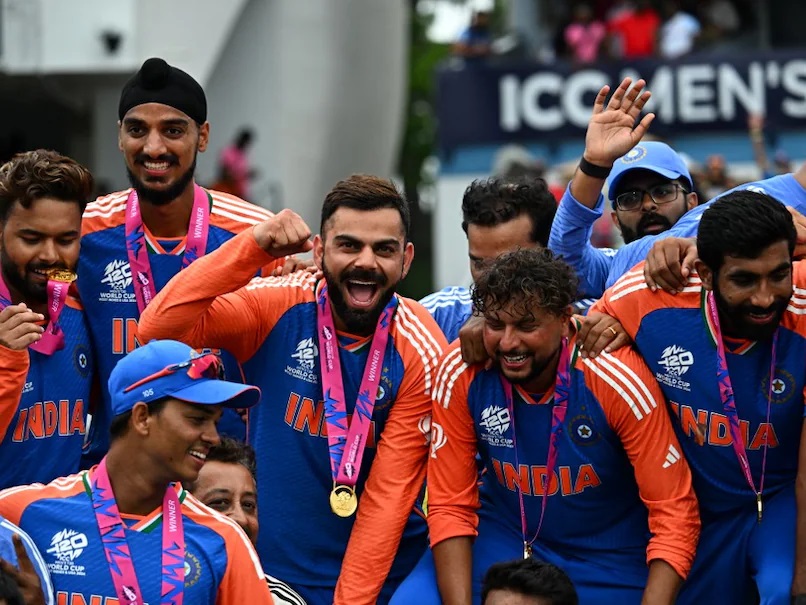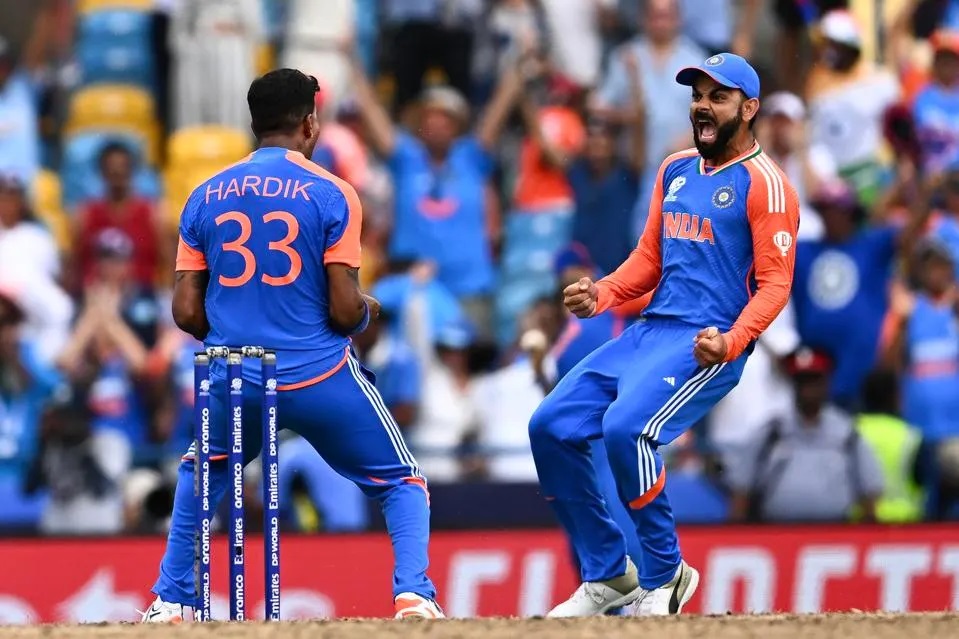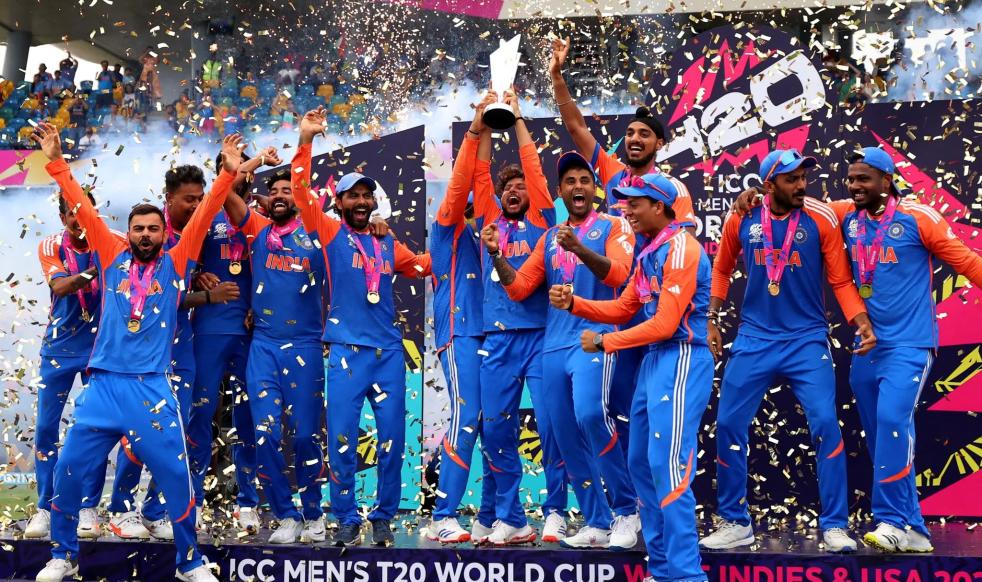India’s men’s cricket team ended a 13-year wait for a global title by clinching the Twenty20 World Cup in a nail-biting final against South Africa on Saturday. Both India and South Africa entered the match in Barbados undefeated, setting the stage for an intense showdown. India, batting first, set a target of 176 runs, with Virat Kohli scoring his first half-century of the tournament, later revealing it to be his final T20 international. Captain Rohit Sharma, after winning the toss and electing to bat, praised his team's resilience under pressure.
South Africa, playing in their first-ever ICC tournament final, needed just 30 runs from the last five overs, bolstered by Heinrich Klaasen's aggressive 52 off 27 balls. However, India's bowlers Jasprit Bumrah, Arshdeep Singh, and Hardik Pandya turned the game around in the death overs, taking seven wickets between them. They restricted South Africa to 169-8, securing a sensational seven-run victory and India's second T20 World Cup win, their first since the inaugural tournament in 2007.

Sharma highlighted the team's unity and determination, saying, “Today was a perfect example, we stuck together with backs to the wall. We wanted this really bad … very proud of the bunch of boys and the management.” This victory not only ended India’s long drought in global cricket but also marked a significant comeback after a series of near misses in the past year.
Virat Kohli’s first half-century of the tournament, in what he later revealed to be his final T20 international, anchored India to a total of 176-7. Captain Rohit Sharma praised his team’s resilience: “Guys understand when the pressure is on what needs to be done. Today was a perfect example; we stuck together with backs to the wall. We wanted this really bad … very proud of the bunch of boys and the management.”
The Indian Diaspora's Impact on Cricket
India’s triumph is celebrated not only by fans within the country but also by the vast Indian diaspora, which has been instrumental in promoting cricket worldwide. The influence of the Indian diaspora is particularly evident in regions like the Gulf and North America.
In the Gulf countries, especially the UAE and now Saudi Arabia, the South Asian diaspora has been key in promoting cricket. The UAE has hosted numerous international matches, including the IPL, for several years, leveraging the substantial South Asian expatriate community. Saudi Arabia, aiming to popularize cricket, has sought assistance from former Indian cricketers and relied on South Asian expatriates to build its teams.
At the stroke of midnight , when the world sleeps, India awakes to victory with the fans all over celebrating.
These are the celebrations in #dubai .
( video not shot by me ) pic.twitter.com/sO4mp2lznR— Ꮙarun (@Ambarseriya) June 29, 2024
In North America, the influence of the Indian diaspora is profound, particularly with the 2024 T20 World Cup being co-hosted by the USA and West Indies. The strong support from South Asian communities has been crucial for the success and high attendance of these matches. The USA cricket team, often humorously referred to as the "H1B team" due to its composition of Indian-origin players, highlights the diaspora’s significant contribution.
In USA, Llve broadcasts of Indian cricket matches are often celebrated at Times Square in New York City, drawing thousands of people from the Indian diaspora to enjoy the event together.

South Asian Unity Through Cricket
Cricket serves as a unifying force among South Asian nations. The Canadian cricket team, featuring players born in India and Pakistan, exemplifies this unity, with teammates often communicating in Punjabi. Social media has highlighted the presence of turbaned Sikh players in various teams, symbolizing the sport’s inclusivity.
Prominent players include Arshdeep Singh from India, Jasdeep Singh and Harmeet Singh from the USA, Dilpreet Singh Bajwa from Canada, and Vikramjit Singh from the Netherlands. Their representation in international cricket underscores the diversity and unity within the sport.
Cricket as Soft Power
The success and popularity of cricket among the South Asian diaspora highlight the sport’s role as a tool of soft power. While geopolitical discussions often focus on hard power and smart power, the cultural influence of cricket remains significant. The South Asian diaspora’s passion and support for cricket help promote the game globally, enhancing cultural ties and fostering international goodwill.
Drove out to NYC for the India Vs USA T20 Cricket match
🇮🇳 🇺🇸
First time watching a match live
Was Fun but Rohit and Virat were out too early again 🤷♂️ pic.twitter.com/bAeoqIHerY— (R)azor(F)ish(G)aming (@RazorFishGaming) June 12, 2024
Moreover, the cooperation and friendly competition among South Asian players in international teams hint at the potential for greater harmony within the region, despite political differences.
India’s T20 World Cup victory is more than just a cricketing achievement; it symbolizes the growing influence of the Indian diaspora in global sports. The enthusiastic support from South Asian communities worldwide continues to elevate cricket’s status, fostering a shared cultural identity and enhancing the sport’s global appeal. As cricket continues to gain popularity, the South Asian diaspora will undoubtedly play a crucial role in its expansion and success on the international stage.

 295 Views
295 Views 0 comments
0 comments
Comments